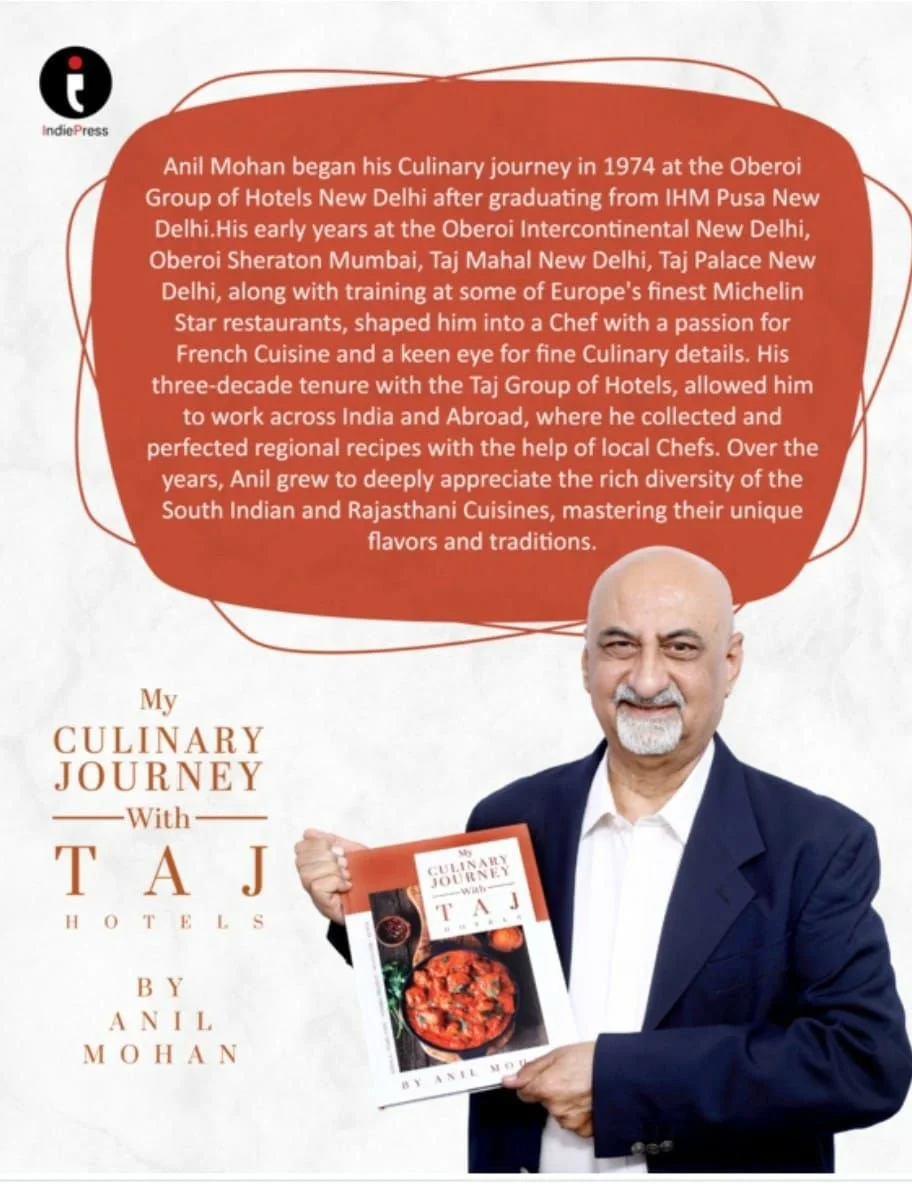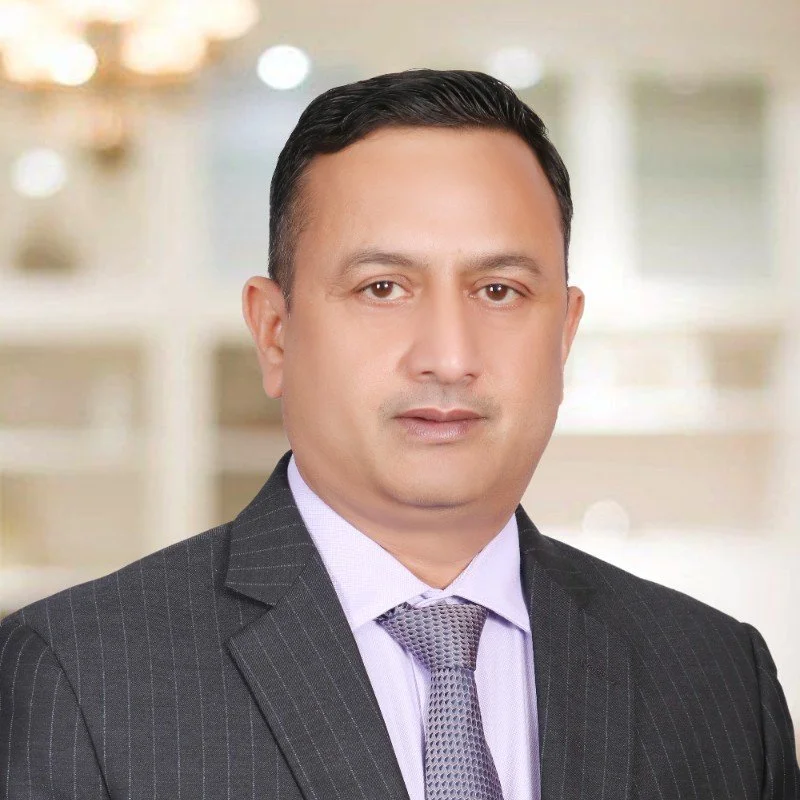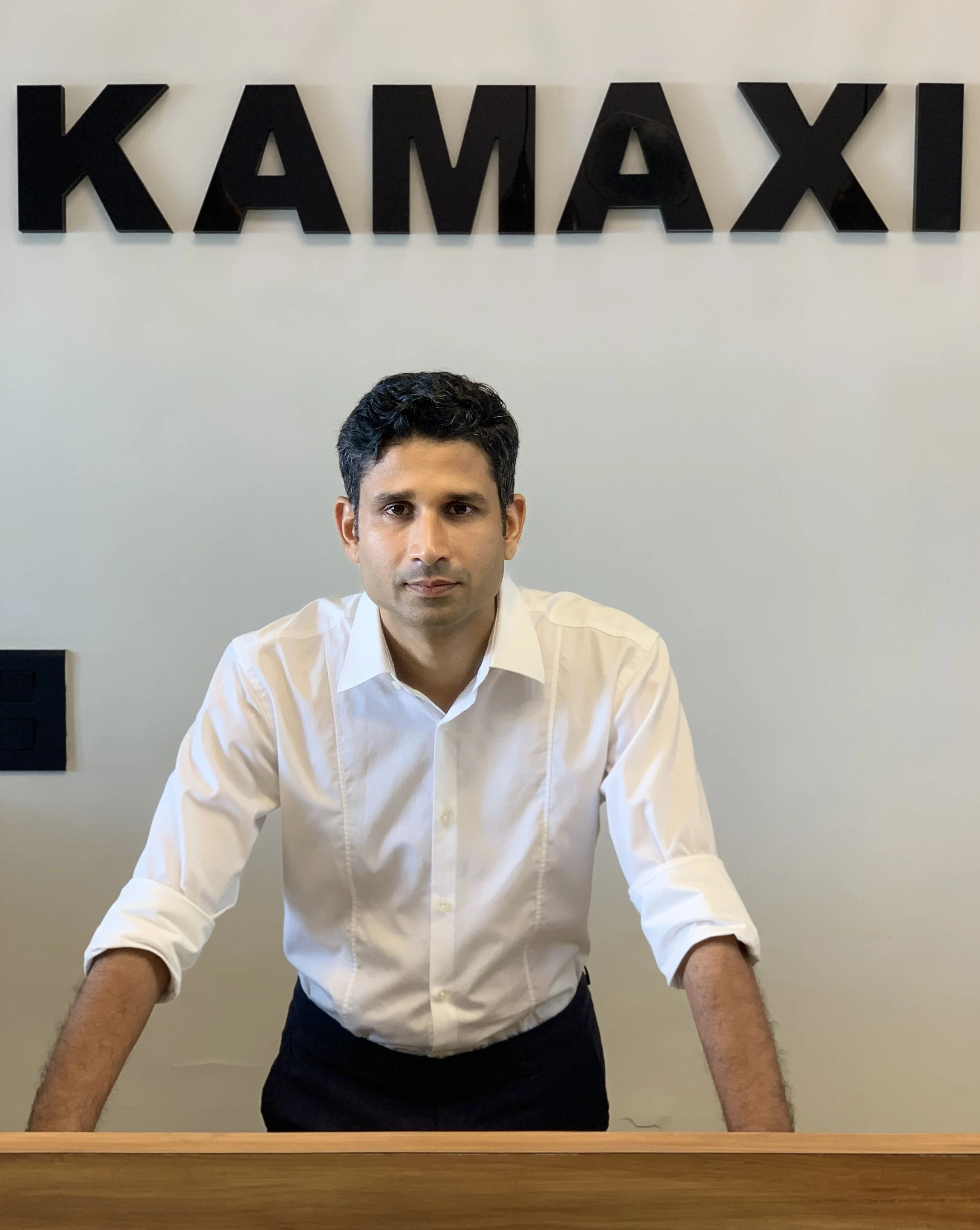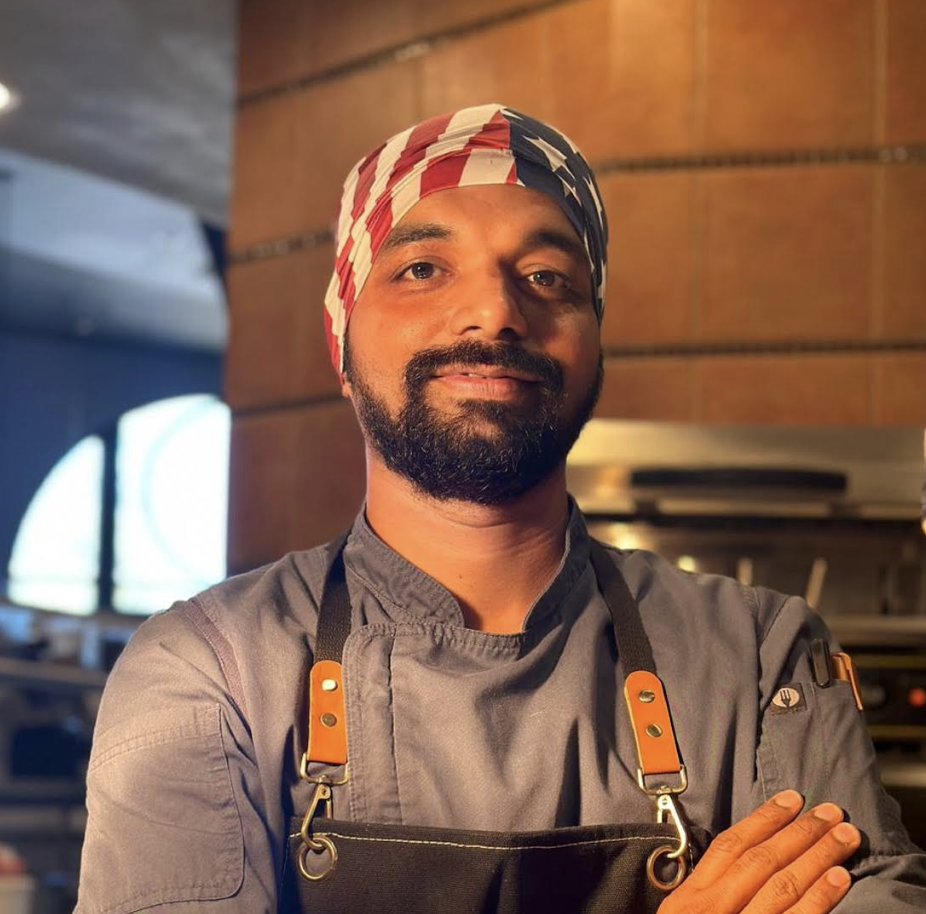Exclusive Interview | Harjeet Wasan, Chief Operating Officer, Spectra Hospitality Services
/“As I look towards the future, I’m driven by the desire to continue leveraging my skills and experiences to drive the success of Spectra, as well as to mentor the next generation of hospitality professionals.”
Tell us about your journey. How did it all start?
My journey in the world of hospitality began nearly three decades ago, born out of a love for the intricacies of Food & Beverage services and the vibrant dynamism of the hospitality industry. I always felt a pull towards this field, given my innate passion for service and my fascination with the endless possibilities of culinary experiences.
I began as a management trainee at a leading 5-star hotel in New Delhi, India. This initial exposure served as a foundational period where I grasped the nuances of the industry and cultivated a broad set of skills. The experience I gained there set the stage for an international career that spanned several countries, including the UAE, Russia, Mongolia, Singapore, and Nepal.
Each geographical move brought with it new challenges, cultural insights, and opportunities to grow. I held the position of General Manager at renowned hotel chains such as Hilton, Radisson Hotel Group, Sarovar Hotels, and JHM Interstate in India, and each role allowed me to further refine my leadership and operational skills.
My core specialization is in Pre-Opening and New Setups - an area I find incredibly exciting and fulfilling. There's nothing quite like the thrill of seeing a new hotel project come to life, and the satisfaction that comes from leading teams towards a shared vision of excellence.
Today, I serve as the Chief Operating Officer for Spectra Hospitality Services, a leading Hospitality Consulting company. It is a role that brings together all the various threads of my career journey - from operations to leadership, and from concept creation to execution.
As I look towards the future, I’m driven by the desire to continue leveraging my skills and experiences to drive the success of Spectra, as well as to mentor the next generation of hospitality professionals. It's been a remarkable journey so far, and I look forward to the challenges and opportunities that lie ahead.
What do you think it takes to succeed in this industry?
People Skills: The ability to connect and communicate effectively with a diverse range of people, from customers to staff members, is paramount in the hospitality industry.
Service Orientation: Commitment to excellent customer service is essential, encompassing the desire to meet and exceed customer expectations and handle any issues with grace and professionalism.
Business Acumen: An understanding of business operations, including finance, marketing, and strategic planning, is vital for informed decision-making and achieving success.
Leadership: In leadership roles, the ability to inspire and motivate your team, handle conflicts, delegate effectively, and create a positive work environment is crucial.
Adaptability: Given the unpredictable nature of the hospitality industry, being flexible and adaptable to changing circumstances is key.
Attention to Detail: Success in hospitality often lies in the details - ensuring every aspect of service is meticulously catered to can set a business apart from its competitors.
Resilience and Stamina: The industry demands resilience to face challenging situations and stamina to maintain high levels of service during potentially long and unusual working hours.
Passion: A genuine passion for the industry and a dedication to creating memorable experiences for customers is often the driving force behind successful professionals in the hospitality field.
Share with us 5 skills that you think will be critical for a hospitality career in the future.
Digital Literacy: Mastery of digital tools and staying abreast of emerging tech trends.
Sustainability Practices: Understanding and applying sustainable practices in hospitality operations.
Crisis Management: Preparedness and efficient response to potential crisis situations.
Cultural Intelligence: Proficiency in understanding, respecting, and working within diverse cultures.
Innovation and Creativity: Ability to create unique experiences and innovative solutions in a competitive landscape.
The new, young traveller wants experiences and Insta ready content. What do you have in store for them?
Unique and Local Experiences: We offer curated local experiences that allow guests to immerse themselves in the culture and lifestyle of the destination. These could include culinary tours, local craft workshops, or guided visits to hidden gems in the city. Instagrammable Spaces: Our properties feature aesthetically pleasing and unique design elements that make for perfect Instagram photos. This can include vibrant artwork, panoramic views, sleek architecture, or themed rooms.
Experiential Dining: Our dining options go beyond just food. We offer unique settings, food presentations, and gastronomic experiences that are designed to be shared on social media.
Sustainable Practices: Knowing that younger travellers often value sustainability, we highlight our green practices. This could include showcasing our farm-to-table menus, eco-friendly amenities, or our involvement in local conservation projects.
Tech-friendly Amenities: We offer tech enhancements like seamless online booking, mobile key entry, personalized digital concierge services, and high-speed Wi-Fi, understanding the need for constant connectivity and convenience of the modern traveller.
Collaborations with Influencers and Artists: We partner with local influencers and artists to host events or design elements of our hotel, ensuring our guests feel connected to the local creative scene.
Launching something new is both an exciting opportunity and a responsibility. Share with us a deep dive into your processes for these new launches.
Market Research and Feasibility Study: This involves assessing the location and target market to understand demand, competition, and potential profitability.
Developing the Concept: Based on your research, develop a clear concept for the hotel that matches your target audience's needs and expectations. This includes deciding on the type of hotel, the services it will offer, its style and branding, etc.
Planning and Design: Create detailed plans for the hotel, including architectural designs, interior design plans, and logistical layouts. This also includes planning for amenities such as restaurants, gyms, meeting rooms, etc.
Regulatory Approvals and Permits: Navigate the legal and regulatory landscape to secure necessary construction and operation permits.
Construction: After approvals, the construction phase begins. Regular monitoring is essential to ensure the project stays on time and within budget.
Hiring and Training Staff: Recruitment should start well before the hotel's opening. Once staff are hired, they will need to be trained in your hotel's systems, values, and expectations.
Procurement: This involves sourcing and purchasing everything from furniture and linens to kitchen equipment and office supplies.
Marketing and PR: Create buzz around your new hotel. This might include press releases, social media marketing, hosting a soft launch event, collaborations with influencers, and so on.
Setting Up Operational Systems: Implement systems for reservations, customer service, maintenance, housekeeping, and so on.
Soft Launch: A period of testing where the hotel is open to guests, but not all services may be available. This is a chance to iron out any issues and get feedback.
What does the future look like? For the industry, you, your project/initiatives?
The future of the hospitality industry and hospitality consulting in India is expected to be shaped by a number of key trends and factors:
Growth in Domestic Tourism: Domestic tourism is projected to grow significantly in the coming years. With an increase in disposable income and a shift in lifestyle, more Indians are traveling within the country. The hospitality industry needs to cater to these domestic travellers’ needs and preferences.
Technology Integration: The future will see an increased use of technology in operations, guest services, and marketing. This includes AI and machine learning for personalizing guest experiences, digital payment and booking solutions, VR/AR for virtual tours, and data analytics to gain insights into customer behaviour.
Sustainability: There's a growing demand for environmentally friendly and sustainable practices in the hospitality industry. Hotels will need to focus on waste management, energy efficiency, and sustainable sourcing of food and other materials.
Wellness Tourism: With increased focus on health and wellness, hotels and resorts offering wellness packages - including yoga retreats, spa vacations, and mindfulness programs - are expected to thrive.
Consultancies offer a wealth of expertise and knowledge that can be invaluable to hotels, restaurants, and other hospitality businesses. They can provide strategic advice, help implement new technologies, aid in staff training, assist with branding and marketing efforts, and much more.
In an industry as dynamic and competitive as hospitality, having this kind of expert guidance can make a significant difference.
Spectra's success is intertwined with the growth of the hospitality industry. As the industry advances, the demand for expert consulting services is expected to rise, and Spectra is well- positioned to meet this demand.
My specialty in Pre-Openings and New Setups, along with my international exposure, provides Spectra with a competitive edge. My leadership and strategic guidance will be crucial as Spectra navigates this evolving landscape and captures new opportunities.
What are the attributes you look for while selecting or hiring ?
Individual's drive and ambition. It's a powerful motivator and often leads to high- performing employees who are eager to take on challenges and drive growth.
People who display this trait will go the extra mile to ensure exceptional service and can motivate their team members to do the same.
Passion for the hospitality industry is crucial. Passionate employees genuinely enjoy their work, and this enthusiasm tends to reflect in the level of service they provide.
They are often more committed, take more pride in their work, and are more likely to stay in their role long-term.
Relevant skills and experience are also important. Employees with the right skillset can perform their duties effectively and often require less training. Experience in the industry can also be invaluable, as these individuals often have a deep understanding of how to provide outstanding guest service, handle various situations, and operate within industry norms and standards
How do you think AI will impact our industry? Specific jobs, processes etc?
AI is poised to have a significant impact on the hospitality industry, including specific jobs and processes. Here are some ways in which AI is expected to influence the industry:
Enhanced Guest Experience: AI technologies can enable personalized guest experiences by analysing guest preferences and behaviour patterns. AI-powered recommendation systems can suggest personalized amenities, services, and local attractions based on individual guest profiles, leading to higher guest satisfaction and engagement.
Automation of Repetitive Tasks: AI can automate repetitive tasks in hotel operations, such as booking processes and check-ins. Chatbots and virtual assistants powered by AI can handle guest inquiries and provide real-time assistance, freeing up front office staff to focus on more complex and personalized guest interactions.
Improved Revenue Management: AI-powered revenue management systems can analyse historical data, market trends, and competitor information to optimize pricing and inventory decisions. This enables hotels to maximize revenue by dynamically adjusting room rates based on demand fluctuations.
Streamlined Operations: AI can optimize various operational aspects, such as housekeeping and maintenance. AI systems can monitor room conditions and schedule maintenance proactively, ensuring optimal room quality and reducing downtime. AI-powered systems can also automate housekeeping tasks, such as room assignments, based on occupancy and guest preferences.
Efficient Customer Relationship Management: AI can assist in managing customer relationships by analysing guest data and preferences. This enables hotels to provide personalized offers, recommendations, and loyalty programs, fostering guest loyalty and repeat bookings.
Data Analytics and Insights: AI enables hotels to analyse large volumes of data quickly and accurately. This helps in gaining valuable insights into customer behaviour, market trends, and operational performance, leading to data-driven decision-making and targeted marketing strategies.
Enhancing Security and Safety: AI-powered surveillance systems can improve security measures by monitoring public areas and detecting suspicious activities.
Additionally, AI can be utilized to enhance safety measures by automating temperature checks, occupancy monitoring, and adherence to safety protocols.
What is the one app / tech solution you would love to see? (ops, HR, training, customer service, anything hospitality)
As of today, the one app/tech solution I would love to see in the hospitality industry is an AI- powered guest experience platform. This platform would integrate various aspects of the guest journey and provide a seamless, personalized, and efficient experience for guests. Here are some key features and benefits of such an app:
Personalized Recommendations: The app would utilize AI algorithms to analyse guest preferences, past behaviours, and demographics to offer personalized recommendations for dining, activities, and local attractions. This would enhance guest satisfaction and create memorable experiences.
Mobile Check-in and Keyless Entry: Guests would be able to check-in and access their rooms using their smartphones, eliminating the need for physical check-in processes and key cards. This would streamline the arrival experience and improve convenience for guests.
Virtual Concierge: The app would feature a virtual concierge powered by AI chatbot technology. Guests could use the chatbot to ask questions, request services, make reservations, and receive real-time assistance throughout their stay. The virtual concierge would be available 24/7, providing prompt and efficient service.
Smart Room Controls: The app would integrate with smart room technology, allowing guests to control room temperature, lighting, and other amenities through their smartphones. This would provide guests with personalized comfort and convenience during their stay.
Real-time Feedback and Issue Resolution: The app would enable guests to provide feedback and report issues directly through the platform. AI algorithms would analyse feedback and prioritize urgent matters, ensuring timely resolution and proactive service recovery.
Seamless Integration with Hotel Operations: The app would integrate with various hotel operations, including housekeeping, maintenance, and room service. This would enable efficient coordination and communication between guests and hotel staff, ensuring prompt service delivery.
Loyalty Program Integration: The app would seamlessly integrate with the hotel's loyalty program, allowing guests to track their rewards, redeem points, and access exclusive offers through the platform. This would enhance guest engagement and encourage loyalty.
Data Analytics and Insights: The app would collect and analyse guest data, providing valuable insights into guest preferences, behaviour patterns, and satisfaction levels. This data could be used to further personalize the guest experience, optimize operations, and drive targeted marketing campaigns.
While there may be existing solutions that incorporate some of these features, an all-in-one AI- powered guest experience platform would bring together these capabilities into a single, user- friendly interface. It would revolutionize the way hotels interact with guests, enhance operational efficiency, and elevate the overall guest experience in the hospitality industry.
































